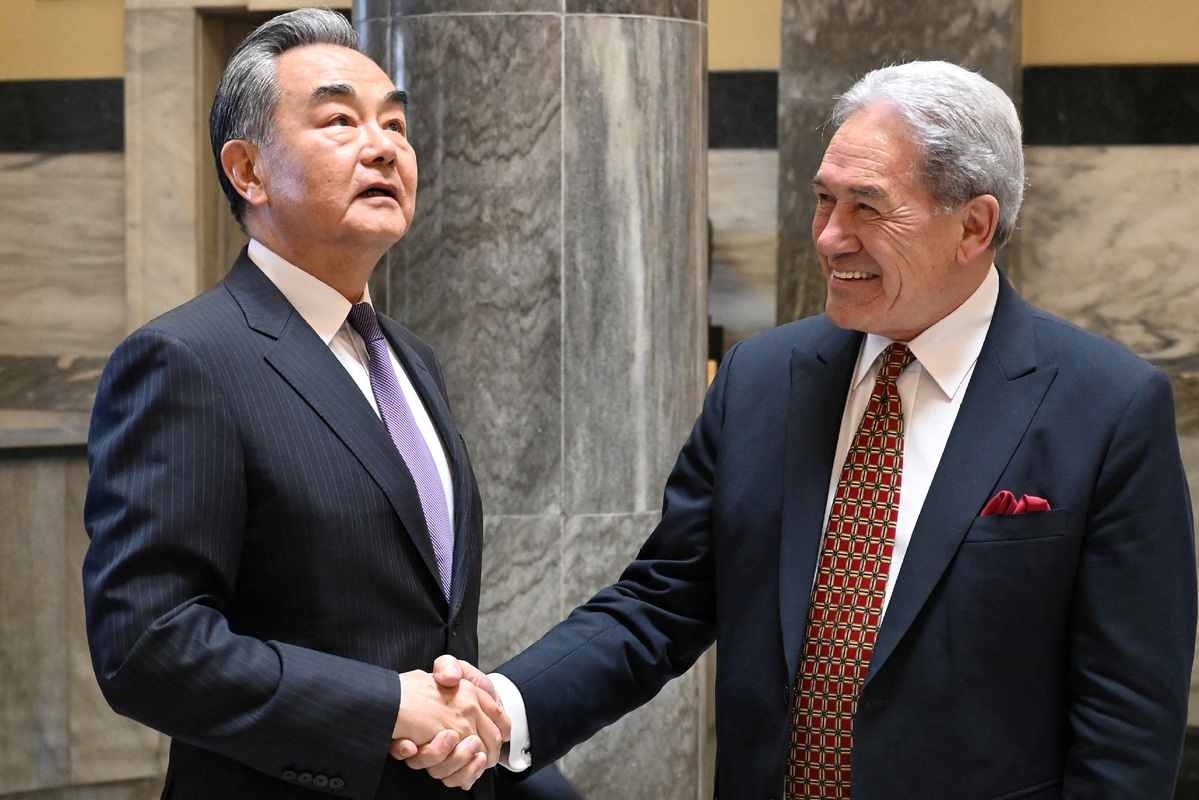Expanding common ground underpins regional stability
By ZHU YUAN | CHINA DAILY | Updated: 2024-03-20 07:55

It is seven years since Chinese Foreign Minister Wang Yi's last visit to New Zealand in 2017. A lot has happened in those seven years, including the COVID-19 pandemic, which has seriously impacted the world. Yet, what remains unchanged is the necessity for both countries to further develop their relations in various fields.
That is why Wang told his counterpart, Winston Peters, during his official visit that China is willing to hold talks on reducing barriers to investment in the service sector at an early time and build new drivers of economic growth with New Zealand in the digital economy and through technological innovation.
Peters, who is also deputy prime minister, said that Wang's visit represented a valuable opportunity to reflect on the challenges and opportunities that have come to the fore.
Indeed, the two countries should hold talks on different levels to further the development of bilateral relations in trade, economic cooperation and other fields.
China is New Zealand's top trading partner. New Zealand was the first developed country to sign a bilateral free trade deal with Beijing in 2008, and their trade agreement was expanded in 2022.
That both sides realize how important it is to manage their differences and seek common ground provides a stable platform on which to raise their bilateral cooperation in an increasingly wide range of areas to new heights.
Wang is also visiting Australia, where he will meet with his Australian counterpart Penny Wong and hold a roundtable with business leaders in Canberra on Wednesday.
During his visit Wang will also meet the country's former prime minister Paul Keating, who has been a staunch advocate for friendly ties with China.
"I have strongly supported Prime Minister Anthony Albanese in his desire, in his words, to re-anchor Australian foreign policy in the region," he said. "Australia has moved substantially from the counterproductive baiting policy the Morrison government applied to China to something much more civil and productive".
What Keating said touches on the cornerstone of bilateral relations between China and Australia and also the role Australia plays in maintaining regional peace and stability.
What matters most to China-Australia ties is how their differences are managed to allow enough space for their trade and cooperation in a wide range of areas to boom.
The two countries do have differences on some issues because of their different political systems and cultures. Talking is the best way to prevent these differences damaging ties.
It is important for Australia to recognize that maintaining the healthy development of bilateral relations with China is in the interest of both countries. Australia should pursue an independent foreign policy so that it is not led astray by the United States.
China, as always, will do its best to manage differences and expand the common ground to develop ties with Australia and New Zealand.
























